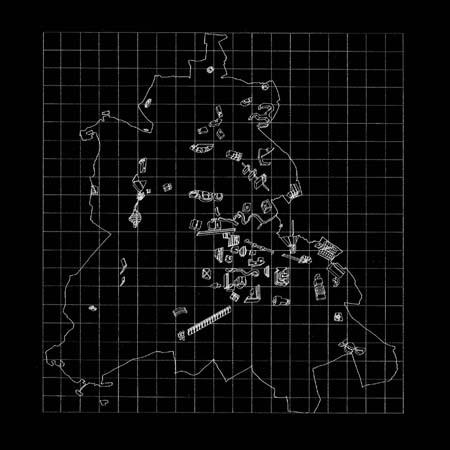Lecture
Towards the Archipelago
Pier Vittorio Aureli

ETH Studio Basel
In 1977 Oswald Mathias Ungers and a group of architects worked on a project for Berlin called “Berlin as Green Archipelago”. The main hypothesis of this project was that the process of de-population, and urban crisis could turn into a possible “ideal” for the city. Ungers proposed the form of the city as an archipelago of dense urban artefacts surrounded by a forest that would gradually replace existing (empty) portions of the city. Thought “Berlin as Green Archipelago” was a specific project for Berlin it can be regarded as a paradigmatic example of a political and formal interpretation of the city. The lecture will address Ungers’ Archipelago not so much within its own historical context, but more as a heuristic device that can help to trace back important categories of the city such as the irreducible difference between city and urbanization, the concept of the formal, the concept of the political, and the role of organization of work in the formation of contemporary urbanity. These categories will be discussed by situating “Berlin as Green Archipelago” in relationship with other paradigmatic examples of the modern city such as Ildefonso Cerdà’s “Theory of Urbanization”, Archizoom’s “No-stop City”, and Rem Koolhaas’ “City of Captive Globe”.
Pier Vittorio Aureli (Rome 1973) is an architect and educator. After graduating from the Instituto di Architettura di Venezia, Aureli obtained a master degree at the Berlage Institute, and a PhD at the Berlage Institute/Delft University of Technology. His theoretical studies focus on the relationship between architectural form, political theory, and urban history. Aureli teaches at the Berlage Institute where he is Unit Professor and responsible for the program “Capital Cities: the City as Political Form”. Within this program he has developed studies on the cities of Moscow, Brasilia, and Brussels Capital of Europe, Seoul, and Rome Currently he is visiting Professor at the Architectural Association in London, and he has taught at Columbia University in New York, at the Accademia di Architettura di Mendrisio, Switzerland, and Delft University of Technology. He is the author of The Project of Autonomy: Politics and Architecture Within and Against Capitalism and is currently working on a book entitled The Possibility of Absolute Architecture, a study on architectural form from Bramante to Robert Smithson. Together with his office Dogma, an architectural collective centred on the project of the city, he won the 1st prize for the new Multifunctional Administrative City in South Korea.
![]() Programme English (pdf)
Programme English (pdf)

